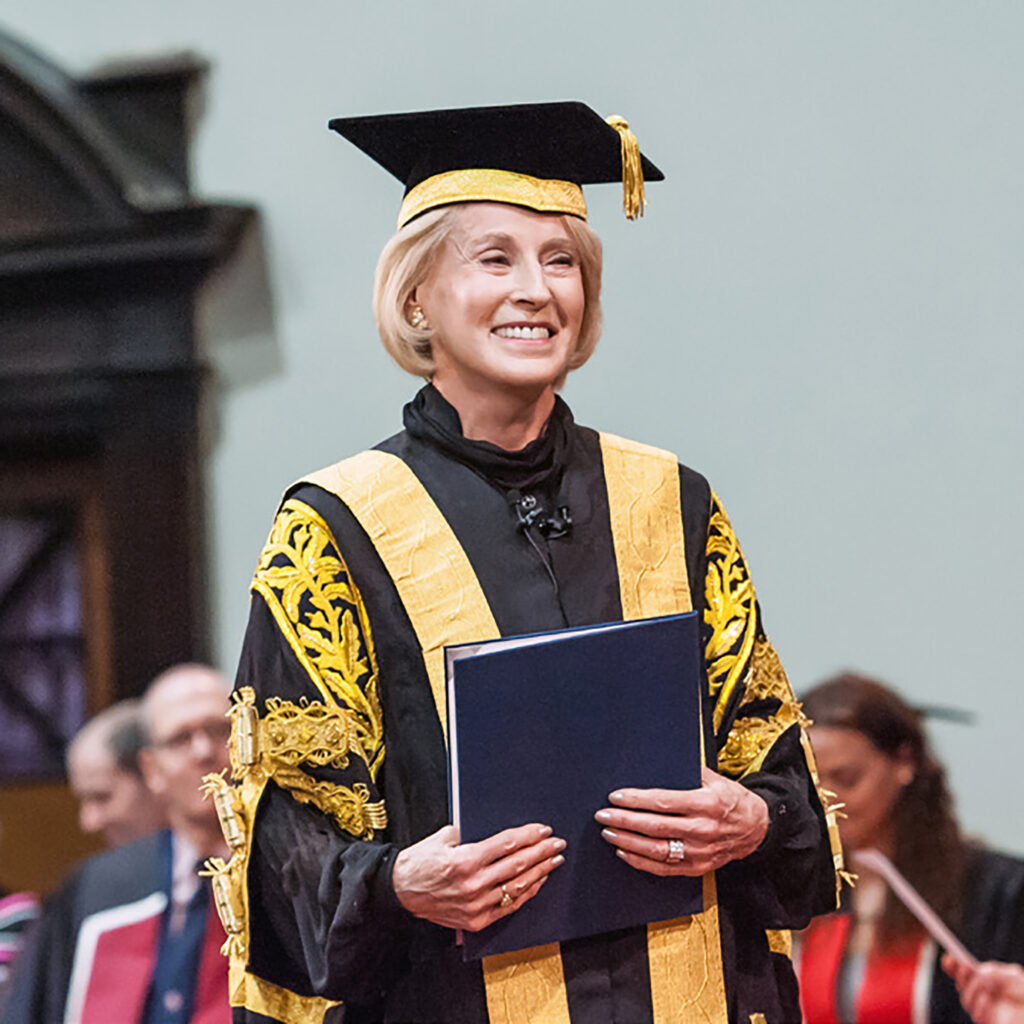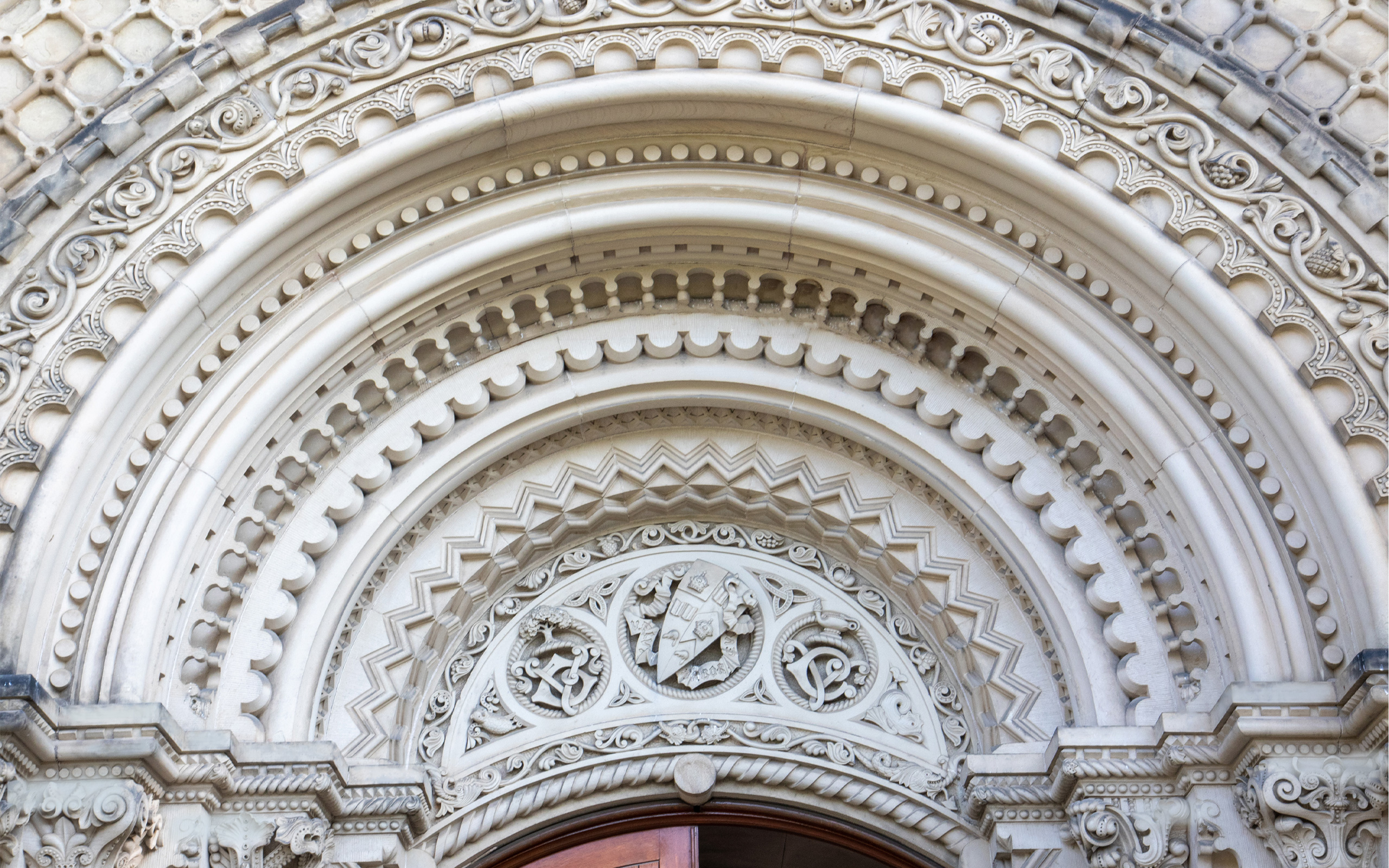Rose Patten reflects on her time as chancellor, the role of philanthropy in advancing the university’s mission, and the importance of alumni engagement

After six years as the 34th chancellor of the University of Toronto, Dr. Rose Patten, special advisor to the CEO and senior executives at BMO Financial Group, author, philanthropist, adjunct professor and longtime volunteer, is preparing to leave her role as titular head of the university.
During her two terms in the position (the maximum allowed), Dr. Patten presided at 133 convocation ceremonies (plus four virtual ceremonies during the COVID-19 pandemic), spoke at more than 200 university events, including student award celebrations and alumni receptions at home and abroad, attended meetings of the Governing Council and chaired the Committee for Honorary degrees, all while meeting regularly with the president and vice-presidents, principals and deans, and others across the university.
Over many years, she has also donated generously to U of T and recently she and her husband, Tom Di Giacomo, became members of the Chancellors’ Circle of Benefactors, the community of U of T’s most generous philanthropic supporters. We asked Dr. Patten to share her reflections on her time as chancellor, the role of philanthropy in advancing the university’s mission, and the importance of alumni engagement.
Congratulations on nearing the completion of six years as the University of Toronto’s 34th chancellor. What are you most proud of when you reflect on your two terms in the role?
I had the good fortune of having been chair of Governing Council and serving in other roles at U of T, starting about 27 years ago. So I see my time as chancellor as the culmination of my engagement with the university, and I feel very privileged to have been able to bring that learning and familiarity to the position.
Of course, the ceremonial role is extremely important, especially at Convocation. Looking into the faces of students, conferring their degrees, being with them on their special day, and seeing their joy – all of that is just priceless. And it was such a privilege to confer the degrees on our honorary degree recipients (and to have chaired the committee that selects and recommends them to Governing Council).
But I was also determined to reach out beyond the ceremonial role. And I am so glad that I did, because I learned so much in doing so, from our students, faculty and staff, and from our alumni and supporters. It was fascinating to see the problems and opportunities in our world from the perspective of the people who are leading the way. And it was such a great source of hope – this sea of wonderful humanity that we have at U of T, doing such good things.
Among your many volunteer roles at U of T, you were a cabinet member of the Boundless campaign, and as chancellor you helped launch Defy Gravity. You’re also a donor yourself. How have you seen fundraising shape and strengthen U of T’s mission, vision and impact?
I have witnessed how the central driver of effective philanthropy begins and ends with the practice of relating to people, and understanding what they care about and their desire to have a direct impact.
This is different for each donor. Discovering it, exploring it and addressing it in your own way becomes the journey. I think of this in terms of “the 4 Ts” – time, talent, treasure (resources) and ties (connections). The point we’re at in life’s journey determines which of the 4 Ts is most compelling.
U of T’s advancement community is exemplary, and has gone from strength to strength over the years. They are tremendously insightful and skillful in connecting with the values of supporters and potential supporters and in helping to translate those values into meaningful causes and clear imperatives. And at U of T, there is such an abundance and wide range of opportunities to give back.
I know that alumni engagement is extremely important to you, and for the first time it’s an official campaign goal as part of Defy Gravity, in addition to our fundraising goal. Why is this so important? And what drives your own commitment to U of T?
The Defy Gravity campaign represents another step forward in being intentional about our alumni engagement. When we launched the campaign with President Gertler and other key representatives of the university, I was delighted to be asked to focus my remarks on that key aspect. It shows the world how serious we are about it.
I know for a fact, having visited with so many of them at home and abroad, that our graduates really are our best ambassadors. They are a key factor in our outstanding global reputation, through their accomplishments in their careers and their contributions to their communities. And many of them are very active in helping us to extend and deepen our global partnerships, and to recruit the next generation of top students.

